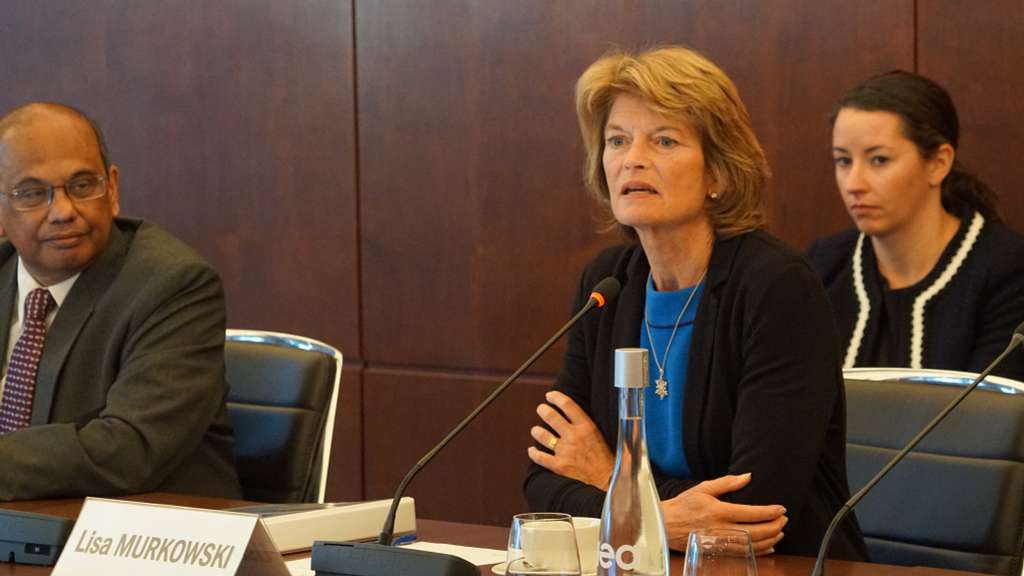Lisa Murkowski Makes Crucial Decision, Backing GOP Policy Bill Despite Calling It an ‘Agonizing’ Choice
Alaska Republican Senator Lisa Murkowski cast a crucial vote on Tuesday in favor of a major bill backed by former President Trump that includes cuts to taxes and social safety net programs. Despite acknowledging that the measure could harm many Americans,Lisa Murkowski said she secured exemptions to protect her constituents from the harshest impacts.
“Do I like this bill? No,” Lisa Murkowski told NBC News, appearing visibly uneasy when asked about her vote. “But I did my best to stand up for what’s best for Alaska and its people. Still, I know there are many Americans across the country who will not benefit from this legislation.”
A four-term moderate senator known for breaking ranks with her party and frequently criticizing Trump, Lisa Murkowski had previously voiced concerns about the bill’s deep cuts to Medicaid and SNAP (food assistance) programs. The bill introduces tougher work requirements and cuts back on federal funding for both programs.
However, facing pressure from Trump for swift action and a narrow Republican margin in the Senate, Lisa Murkowski used her influential position to push for changes. GOP leaders worked to win her support by adding several concessions, including a provision that allows certain whaling captains in Alaska to claim larger deductions for their expenses.
Some viewed this backroom bargaining as the savvy work of an experienced lawmaker fighting for her state. Others, however, accused Lisa Murkowski of trading her vote for political favors, especially after she admitted the bill could be harmful to many Americans.
Senator Ruben Gallego, a Democrat from Arizona, wrote on social media, “Republican Senator Lisa Murkowski is working to secure whatever ‘Kodiak kickback’ she needs to support this dangerous bill.”
Democrats also warned that the exemption Lisa Murkowski won for Alaska could have unintended consequences across the country. They argued it creates a distorted incentive by rewarding states with high SNAP error rates, essentially encouraging mismanagement.
One of Lisa Murkowski’s main concerns was that Alaska’s unusually high error rate in SNAP payments might result in the state having to bear an unfair portion of the program’s costs. Initially, Republicans tried to address this by categorizing Alaska as an “unorganized state” to exempt it from the provision.
But when Senate parliamentarians—officials who enforce chamber rules—ruled that the bill couldn’t legally allow such special treatment, GOP leaders had to find another workaround. They eventually agreed to give a two-year exemption to states with the highest rates of SNAP overpayments or underpayments, effectively protecting 10 other states with similar issues from facing higher costs.
Senator Amy Klobuchar of Minnesota, the leading Democrat on the Agriculture Committee responsible for the program, spoke out against the decision.“The only way to avoid the rule was to expand the corruption,” she said. “States that are doing things right still have to make these cuts.” She argued that the Republican-led bill sends the wrong message: “Raise your error rates—take them to 10, 20, 30, even 40 percent! Make lots of mistakes with SNAP, and you’ll get more money.”
In the days leading up to the vote, Lisa Murkowski reportedly wrestled with her decision. She spent many hours during the overnight sessions, both on and off the Senate floor, often bundled in a thick blanket to stay warm, having conversations with fellow senators and carefully considering her decision.
Even after the vote, Murkowski continued to express serious concerns about the very bill she supported. When asked how it felt to vote “yes,” she described the experience as “painful.” Ultimately, she said she supported the extension of Trump-era tax cuts set to expire at the end of the year, believing that letting them lapse would also harm her constituents.
“When I think about the Medicaid and SNAP provisions, I find it deeply troubling to consider how this bill could affect the most vulnerable people in our country,” she said.
